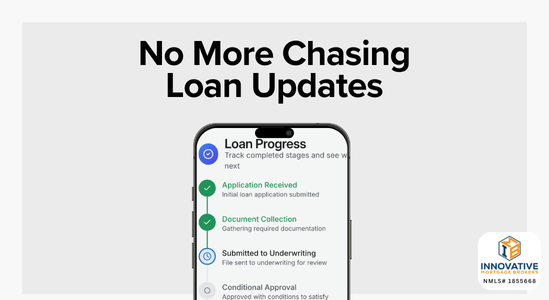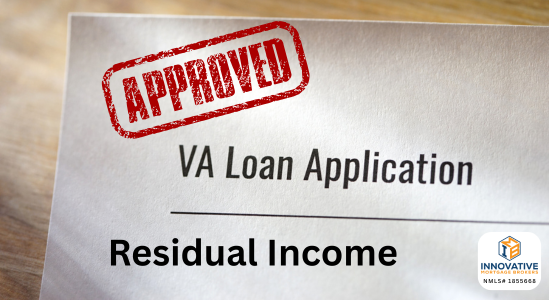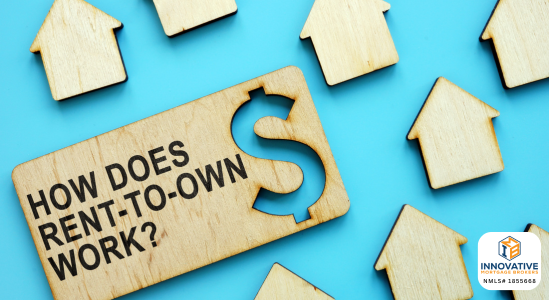Our new portal lets you securely check progress, milestones, and next steps anytime you want…
What is Pre-Approval, and Why do you Need One?

The mortgage pre-approval is the most important initial part of the mortgage process. It’s the key to closing your loan on time and getting the financing you need.
It’s strongly recommended to get pre-approved before looking at homes. It streamlines the closing process and ensures you can close on time on the home you want.
Here’s what you must know.
What is a Pre-Approval?
A mortgage pre-approval is an approval of your financial situation to borrow money to buy a house. It’s an evaluation of your income, assets, debts, and credit history to determine what loan programs you qualify for and how much money you can borrow.
It’s not a guaranteed or final approval, but it helps you learn how much you can borrow if you satisfy the conditions required.
If you’re pre-approved, your loan officer will supply you with a pre-approval letter stating how much you can borrow, which loan program you can use, and the estimated interest rate.
How do you get Pre-Approved?
To get pre-approved, you must complete a loan application and provide lenders with proof of your qualifying factors, including the following.
Personal Factors
To apply for a mortgage, you must prove your identity. You can do this with a government-issued ID, such as a driver’s license, state ID, or passport. You’ll also provide your birth date and social security number on the application.
Income Documentation
You must prove you can afford the mortgage payment and have a steady employment history. This is done with the following:
- Paystubs covering the last 30 days of employment
- W-2s from the last one to two years (depending on the program)
- Tax returns from the last one or two years (if self-employed, and depending on the program)
- Business tax returns if you own a business
- Employer information for the lender to verify your employment
Asset Documentation
To prove you have enough money for the down payment and closing costs, you must provide documentation of your assets, including the following:
- Two months of bank or investment statements (whichever account holds your down payment funds)
- Gift letters from anyone helping with your down payment (the lender must approve this)
Miscellaneous Documentation
If you have any extenuating circumstances, you may need to provide other documentation, such as a Letter of Explanation.
A Letter of Explanation (LOX) allows you to talk about any issues you’ve had with your credit, employment gaps, or other situations that might work against you in underwriting but that you’ve since resolved.
How Long Does a Pre-Approval Last?
Lenders have different expiration dates for their pre-approval letters. However, most last for 60-90 days as long as nothing changes. Therefore, applying for pre-approval is best when you’re ready to look at homes. If you get one too soon, it could expire before you find a home.
The good news is that getting a pre-approval renewed isn’t difficult. You can re-apply if you don’t find a house before the pre-approval expires. Typically, you must provide updated income and asset information, such as new paystubs and bank statements. The bank may also pull your credit again.
They do this to ensure you still qualify for the loan. Since a lot can change from when you apply for the loan, lenders need to ensure everything still fits their criteria.
How to Avoid Losing a Pre-Approval
Even if you’re pre-approved, you must get final approval, including the house you choose must clear underwriting, and you must satisfy any conditions on your pre-approval letter.
After you find a house, the lender will ensure everything is the same. To avoid losing your pre-approval, don’t do any of the following:
- Change jobs
- Rack up credit card debt
- Spend money from your down payment account
- Open new credit accounts (credit cards, car loans, personal loans, etc.)
- Make late payments or hurt your credit
- Make large deposits in your down payment account
Why is a Pre-Approval Necessary?
A pre-approval is necessary to show sellers you’re a serious buyer. Many sellers won’t accept an offer from a buyer that isn’t pre-approved. Without a pre-approval, there’s a higher risk you won’t get the financing to close on the loan.
If a seller had two offers – one from a pre-approved buyer and one from one that wasn’t, they would likely pick the pre-approved buyer.
A pre-approval also helps you understand how much you can afford and can help you speed up the closing process when you find a home. Since home sales contracts have a firm closing date, you want to do whatever is possible to ensure you can meet the contracted date.
What is the Difference Between a Pre-Approval and Pre-Qualification?
Many people confuse the terms pre-approval and pre-qualification. A pre-approval, as we said, is formal approval of your financial situation. Then, the underwriter reviews your qualifying documentation and approves your loan based on their findings.
A pre-qualification is an estimate of what you can afford. You don’t need to provide any supporting documentation. Instead, you tell the loan officer your estimated credit score, monthly income, debts, and assets. The loan officer uses the numbers to estimate how much you can afford and which loan program you might get.
A pre-qualification is a good idea when considering buying a house but don’t know what you can afford. The loan officer can help you understand the necessary down payment and budget to afford the home.
When you’re ready to apply for a mortgage and look at homes, apply for pre-approval.
Final Thoughts
A mortgage pre-approval is the best way to get your home buying journey off on the right foot. You’ll know what you can afford and what conditions you must satisfy to close your loan. They are good for 90 days in most cases, so you can take your time finding a home, knowing that your qualifying factors allow you to borrow the funds to purchase it.
You’ll have better negotiating power with sellers and the edge over the competition if there’s a bidding war and you have a pre-approval letter, and the other buyers don’t.
Working with a reputable loan officer is crucial as they can help guide you through the entire process. With their expertise and knowledge of current lending policies, they’ll make sure that you get qualified for the right loan with terms and rates best suited to your goals and financial situation. Bottom line: when looking to purchase a home, it pays off to work with an expert who can ensure that you have all your ducks lined up in a row before entering into this incredibly exciting but equally important decision.




